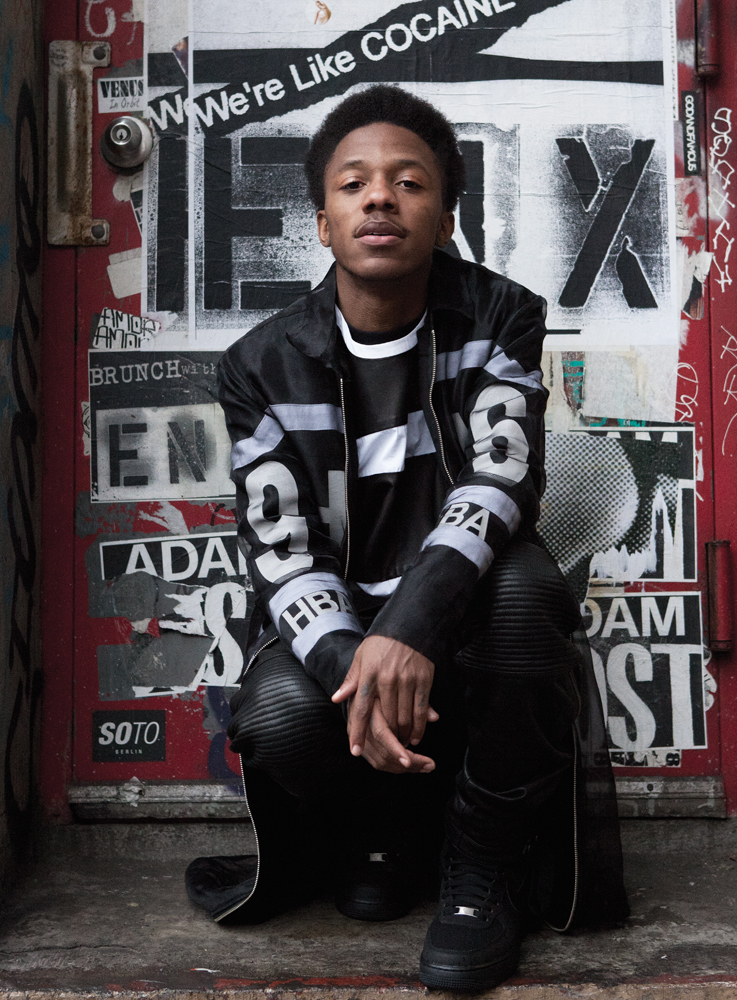Dillon Cooper
“I always knew I was going to work in music in one way or another,” proclaims Dillon Cooper, perched on a windowsill in the empty lobby of the Crown Heights, Brooklyn, apartment building that he’s lived in his entire life. This notion is not as much of a reach as it might sound. Both of the 21-year-old rapper’s parents have been involved at various points in the music industry: his father is a guitar player and reggae DJ from London; his mother is an entertainment journalist who used to be a VJ for a public-access reggae show. Cooper received his first guitar from his dad at age 7 (he asked for an electric, his father got him a Dean acoustic-electric), and attended his first concert-Eminem and 50 Cent-with his mom.
It wasn’t until high school, however, that Cooper truly immersed himself in hip-hop, learning how to rap Dr. Dre’s golden-era classic “Nuthin’ but a ‘G’ Thang.” After graduating from public school in Manhattan, Cooper attended the vaunted Berklee College of Music in Boston for a year to study guitar on a partial scholarship from Jay-Z’s Shawn Carter Foundation. But when he was put on academic probation and lost his ride, he found solace in his own beats and rhymes, pulling together the material that would make up his self-released debut mixtape, Cozmik, which came out last June. “That was my first stamp to basically say, ‘Okay, guys, I can rap,’ ” Cooper says. “You’re going to know that I can spit.”
Along with fellow Brooklynite Joey Bada$$, Cooper is part of what has come to be known as New York’s “Beast Coast” movement, an emerging group of loosely affiliated witty wordsmiths who were born in the ’90s and are influenced as much by Sisqó and Will Smith as they are Biggie and Mobb Deep. Cozmik heavily references that period, with plenty of tongue-in-cheek pop-culture shout-outs to the ephemera of Cooper’s childhood—”Elevated to infinity and beyond, boy / No Toy Story but I had a fucking light year” (“Shadows”)—and beats that evoke the languid boom-bap of vintage ’90s-era NYC rap (“State of Elevation,” “Kung Foo”), all enriched by sleek 21st-century production.
Despite the attention he has recently received—not to mention some of the fringe benefits he has enjoyed, like partying with Wu-Tang Clan after a festival appearance in Germany this summer—Cooper has continued to work in earnest, and is currently crafting an EP that will showcase the wider spectrum of his tastes and talents, featuring explorations into the realms of jazz and R&B, as well as his own guitar work. “I can always do it better,” he says. “I’m not at the point yet where I can put out how I really feel about anything, where I can completely have closure with music—it hasn’t come yet.”







